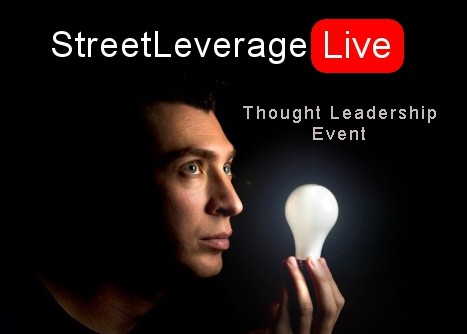
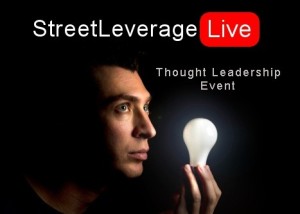 What do projectile vomiting, cancelled and delayed flights, and an unrelenting Nor’easter have in common? StreetLeverage—Live. As anyone who has organized a live event will tell you, there are always unforeseen challenges that arise and StreetLeverage—Live had its fair share. Despite these challenges, the event was a success.
What do projectile vomiting, cancelled and delayed flights, and an unrelenting Nor’easter have in common? StreetLeverage—Live. As anyone who has organized a live event will tell you, there are always unforeseen challenges that arise and StreetLeverage—Live had its fair share. Despite these challenges, the event was a success.
Talent Salute
I salute Nigel Howard, Trudy Suggs, Lynette Taylor, and Wing Butler, the inaugural speakers of StreetLeverage—Live, for their commitment to the field and its next evolution, the courage to openly share their big ideas, and the considerable effort made to effectively pack these ideas into a concise 20-ish minute talk. No small task to be sure. These independent thinkers are people who require more of themselves, those around them, and of the status quo.
Nigel, Trudy, Lynnette and Wing, you guys killed it! Nicely done.
A Recap
Nigel Howard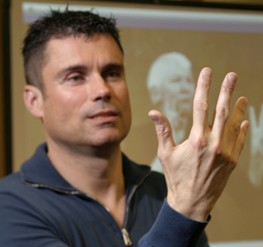
Nigel presented, Deaf Interpreters: The State of Inclusion. His talk explored some of the perceptions that challenge better integration of deaf interpreters into the field and into daily practice. Most notably, the perception that ASL-English interpreters have that requesting to work with a deaf interpreter is an indication of an inferior skill-set.
Additionally, he highlighted that the definitions ASL-English and deaf interpreters hold of each other, correct or not, is the basis of their effectiveness working together and that both have equal responsibility for the processing of information and outcome of the communication.
Finally, Nigel offered that there is a need to broaden the view of how and why deaf interpreters are used in order to improve their inclusion and contribution to the field.
Trudy Suggs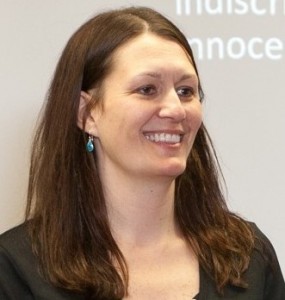
Trudy presented, Deaf Disempowerment and Today’s Interpreter. Her talk examined how the choices sign language interpreters make while delivering communication access can, and often do, contribute to the economic and situational disempowerment of deaf people.
Trudy offered that interpreters can avoid stripping power from those they work with, and the broader Deaf community, by remembering who are the owners of the communication. Further, that it is essential to defer to these owners and Deaf community representatives rather than speak on their behalf. Additionally, that true empowerment begins when a consciousness is achieved that results in the referring of opportunity to back to the Deaf community.
Finally, she offered that anything less than full and mutual respect, regardless of the situation and/or opportunity at stake, is a failure to support true empowerment.
Lynnette Taylor
Lynette presented, Modern Questor: Connecting the Past to the Future of the Field. Her talk explored, how the dwindling numbers of deaf-centric service agencies and shared gathering places for the Deaf community and sign language interpreters is impacting the sign language interpreting field.
Lynnette offered that the elimination of these agencies and places of gathering is resulting in the disappearance of the stories and storytellers that serve to connect the two communities—and practitioners to each other—through a common understanding of the struggles and sacrifices known, victories achieved, and destination aimed for.
Finally, she suggested that without this common bond and shared understanding of history, sign language interpreters are left adrift—powerless against the definitions imposed upon them and their work.
Wing Butler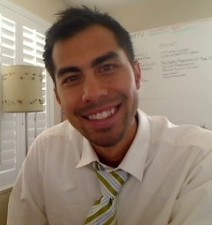
Wing presented, Onsite Sign Language Interpreters Face Extinction. His talk examined the legislation and technology developments of the 90’s that defined the values of the “Onsite Era” and how these values are now being replaced by the values of a “Virtual Presence Era.”
He offered that some of the key values of the Onsite Era that are being replaced are, a relational approach to the work, interpreters are service professionals, quality means certified, specialty skill-sets and individual representation are valuable, and success is achieved through reciprocity.
Wing suggested that the iterative realignment of these values leaves sign language interpreters vulnerable to a number of dangerous pitfalls. Pitfalls that can be avoided by working to protect the value of certification, collaborating with industry partners, preparing the leaders of the future, and leveraging technology to create a learning culture within the field.
A Giant Thank You
Access Interpreting
I would like to thank Access Interpreting for being the Thought Leadership Sponsor of the PCRID conference. Their leadership and support was directly responsible for making the inaugural StreetLeverage–Live event possible.
Lyle, Brad, and Ryan, thanks for your vision and generosity in giving back to the field. asdfasdf
PCRID
I would like to offer my thanks to the PCRID conference co-chairs, Josh Hughes and Jennifer Bell and the PCRID Board for their support of StreetLeverage and live thought leadership at the conference. You all did a great job.
Participants
Thanks to the many people who actively participated in the event. It was your engagement and shared insight that multiplied, exponentially, the value of the speakers sharing their ideas and perspectives.
The Takeaway
What quickly became obvious during the event is that there is an interest in openly discussing the developments and forces at play within the field in a live, real-time environment.
Let us collectively consider how we can personally work to include our deaf interpreter counterparts, avoid disempowering those we serve, find ways to share our collective stories, and avoid the pitfalls before us as our field continues to evolve.
Be on the lookout, as videos for each of the talks will be individually released on StreetLeverage.com in future.
Have a question for Nigel, Trudy, Lynnette, and/or Wing? Ask away!

